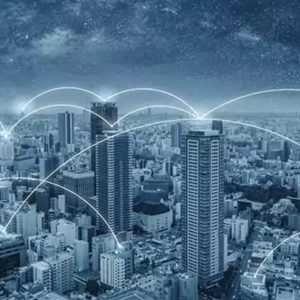Over the past year, more than one in five municipalities in Italy have initiated smart city projects, demonstrating “the will to actively participate in the digital revolution of cities.” This according to the congress “Smart City: Roadmap for the Government,” organised in Rome on Tuesday by Q8 Italia.
The event focused on strategies to develop advanced technologies and foster strong collaborations between public and private sectors to build sustainable and smart cities. Q8 is an affiliate of Kuwait Petroleum International (KPI).
Key projects highlighted included Rome’s Dataplatform, Mantua’s smart parking with lot technologies, the Nuvola Convention Centre in Rome, and futuristic cities like The Line in Neom, Saudi Arabia, designed by the Fuksas architectural studio.
“We have made much more progress than generally believed and we are all able to do incredible things,” said Massimiliano Fuksas. Environment Minister Gilberto Pichetto Fratin highlighted the evolving role of energy transition and digital transformation in reshaping cities into sustainability laboratories. He also stressed the importance of companies like Q8 in supporting new mobility initiatives and enhanced service stations.
“The realisation of Smart Cities, which integrates digital networks and services benefiting companies and citizens, represents a priority for the future of our communities,” stated Fadel Al-Faraj, executive vice president of marketing at Kuwait Petroleum International.
“Q8 Italia is firmly committed to supporting the development of smart and sustainable cities, promoting innovative policies and solutions that can improve the quality of citizens’ lives,” he added.
Smart cities help combat climate change
Foreign Undersecretary Giorgio Silli noted that Italy plays a leading role in the global effort to transform cities into smart cities, a crucial part of the challenge for decarbonisation and combating climate change. He highlighted the significant role cities can play in sustainable development.
Rome’s councillor Alfonsi for agriculture, the environment, and waste management discussed the capital’s commitment to digital and ecological transition through a comprehensive plan. This would cover various sectors such as the environment, waste management, mobility, social services, culture, tourism, security, and energy resources. Alfonsi introduced Consulta Roma Smart City Lab, “an operational and governance tool for digital transition.”
“We are talking about smart cities, but there are already completely imaginary cities, including in the Metaverse, where it’s possible to organize parties and even purchase properties,” observed Doriana Fuksas. “We should hurry up to innovate rather than just talk about them.”
The congress marks a significant step in Q8 Italia’s ongoing efforts to promote smart cities, continuing from the high-level training course “Smart City: Innovation, Social Impact, Environmental Sustainability, Juridical Profiles,” recently completed at the European School of Economics.





